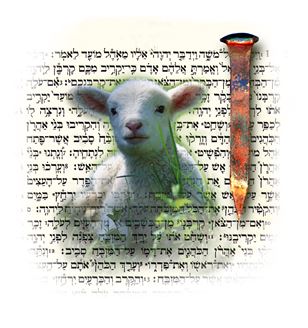Appointed Times: The Fall Feasts
The Fall Festivals of God: prophetic rehearsals with relevance for today. Part of the Messianic Foundations series.
In the epistle of Romans, our teacher Paul speaks to the non-Jewish believers reminding them that they have been grafted-in. “But if some of the branches were broken off, and you, being a wild olive, were grafted in among them and became partaker with them of the rich root of the olive tree, do not be arrogant toward the branches; but if you are arrogant, remember that it is not you who supports the root, but the root supports you” (Romans 11:17-18, NAS).

Messianic Foundations
Artwork by Steve Grier © 1997 RBC Ministries. Used by permission.
Much has been said about this “root,” and many theories bantered about as to Paul’s intent. It is not likely that we will achieve consensus in this article, but Paul is clear that the root supports the non-Jewish believer. Biblically, Israel is referred to as an olive tree in Jeremiah 11:15-17 and Hosea 14:6, so the Scriptural precedent indicates that Paul intends the reader to understand the tree to be the believing remnant of Israel. By personal experience and an ever-widening understanding of the Scriptures, this author agrees with Paul, that this root is our ancient Biblical heritage—an inheritance with its origins in faithful Judaism1.
Theologians discuss “progressive revelation,” and find the pages of the Bible replete with an ongoing, ever expanding and consistent manifestation of the character of God. Such Biblical understanding is often crucial in effective evangelism and apologetics, drawing the plan of the Almighty out like a treasure map for the explorer to find.
By searching through the treasures waiting us in our own Biblical heritage, in this case the Fall Feasts of Leviticus 23, untold riches can be found. Some may have been taught that Rosh Hashanah, Yom Kippur, and Sukkot, are “Jewish” festivals and therefore “dead” in a modern faith expression. If the observance of these appointed times were strictly ethnic, such teaching would certainly be true and any application empty legalism. But in a strictly Biblical context, the only context we should concern ourselves with, and the heritage that is ours to claim, this wholesale rejection of the feast days is both unfair and unscriptural. It denies believers of every denominational creed their own God-given heritage.
The LORD spoke again to Moses, saying, “Speak to the sons of Israel and say to them, ‘The LORD’S appointed times which you shall proclaim …” (Lev 23:1, 2).
God calls them His appointed times. At no point does the Architect of our faith refer to them as the “Feast of Israel,” or the “Jewish High Holy days.” To do so takes them out of Scriptural context, improperly transfers them into an ethnic context, and in our innocence creates a sense of distance that makes us feel they have no place in our Christian faith. This steals the treasures that God intended for His faithful remnant to have; it robs them of their inheritance, and hinders our understanding of the Bible.
Category: Biblical Studies, Winter 2000


